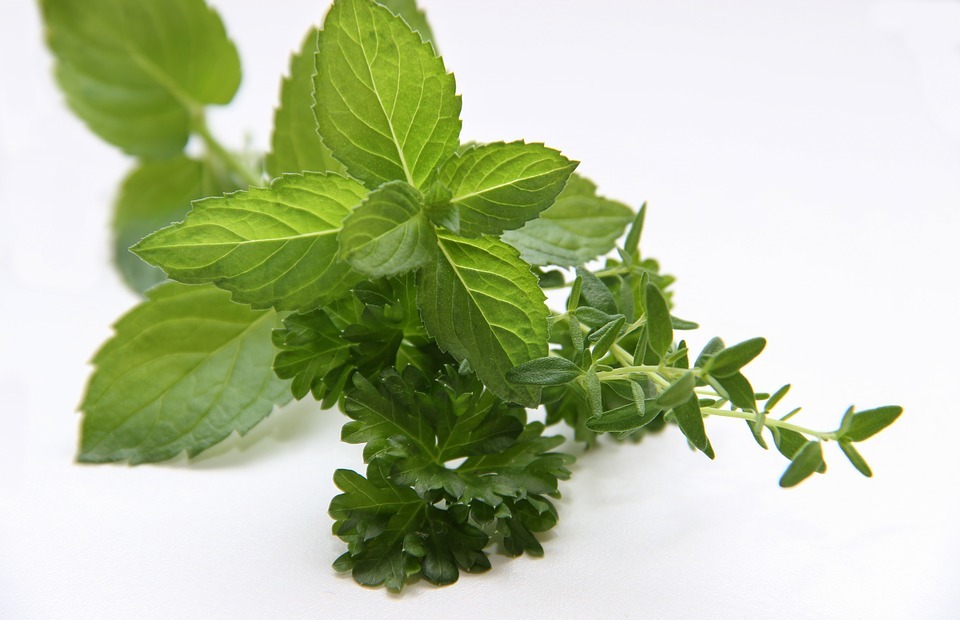The refreshing scent of peppermint often fills our homes, bringing a sense of tranquility and freshness. But when it comes to our feline companions, the question arises: Is peppermint safe for cats? This article will delve into the intricacies of peppermint's potential effects on cats, exploring both its potential dangers and limited benefits. We'll examine various forms of peppermint, such as essential oil, leaves, and tea, and provide guidance on keeping your cat safe.
Part 1: Peppermint: A Closer Look

Before delving into the specifics of peppermint's impact on cats, it's essential to understand what makes this herb so unique and potentially problematic.
1.1. The Chemical Composition of Peppermint
Peppermint, scientifically known as Mentha piperita, is a hybrid mint species renowned for its invigorating aroma and various uses. This aromatic herb owes its distinct qualities to a blend of chemical compounds, most notably:
- Menthol: The primary ingredient responsible for peppermint's cool, refreshing sensation. It also contributes to its calming and pain-relieving properties.
- Menthone: Another volatile oil contributing to peppermint's distinctive fragrance. It also possesses anti-inflammatory and antimicrobial effects.
- Menthyl Acetate: This compound adds to the complexity of peppermint's aroma and contributes to its stimulating effects.
1.2. Understanding the Potential Dangers of Peppermint for Cats
While peppermint is generally safe for human consumption, its strong chemical composition makes it potentially toxic to cats. The key culprit lies in the presence of essential oils and other concentrated compounds that can trigger adverse reactions in a feline's sensitive system.
Part 2: The Risks of Peppermint for Cats

This section explores the potential dangers of various forms of peppermint for cats, focusing on the severity of each and the symptoms to watch out for.
2.1. Peppermint Essential Oil: A Significant Threat
Peppermint essential oil is highly concentrated, making it the most dangerous form of peppermint for cats. Even a small amount, whether ingested or applied topically, can lead to severe health complications.
2.1.1. Potential Symptoms of Essential Oil Toxicity
- Gastrointestinal Distress: Vomiting, diarrhoea, abdominal pain, and loss of appetite are common signs.
- Respiratory Issues: Difficulty breathing, coughing, wheezing, and even respiratory failure can occur.
- Neurological Problems: Tremors, seizures, incoordination, and coma are serious neurological complications.
- Skin Irritation: Topical application can cause dermatitis, redness, itching, and even allergic reactions.
- Liver Damage: In severe cases, exposure to peppermint essential oil can lead to liver damage and failure.
2.2. Peppermint Leaves and Tea: A Milder Threat
While less concentrated than essential oil, peppermint leaves and tea can still pose risks to cats. The quantity ingested and the cat's individual sensitivity play a role in the severity of the reaction.
2.2.1. Symptoms of Ingesting Peppermint Leaves or Tea
- Gastrointestinal Upset: Mild to moderate vomiting, diarrhoea, and abdominal discomfort may occur.
- Increased Heart Rate: Peppermint can stimulate the heart, leading to tachycardia (rapid heartbeat).
- Nervous System Stimulation: Some cats may exhibit hyperactivity, agitation, or restlessness after consuming peppermint.
Part 3: Recognizing Signs of Peppermint Toxicity
Early detection is crucial when it comes to peppermint toxicity. Knowing the signs can help you act swiftly and seek professional veterinary help.
3.1. Common Symptoms to Watch For
- Vomiting
- Diarrhoea
- Loss of Appetite
- Lethargy
- Excessive Drooling
- Tremors
- Seizures
- Difficulty Breathing
- Skin Irritation (redness, itching, or rashes)
3.2. Seeking Veterinary Attention: When to Call the Vet
Any suspicion of peppermint toxicity warrants immediate veterinary attention. Don't hesitate to contact your veterinarian if you observe any of the symptoms listed above. Prompt action can prevent serious complications and improve the chances of a successful recovery.
Part 4: Peppermint: Potential Benefits for Cats?
While peppermint poses significant risks to cats, some anecdotal evidence suggests limited potential benefits, though it's crucial to approach these with caution and consult with your veterinarian before introducing any form of peppermint into your cat's environment.
4.1. Flea and Tick Repellent: A Natural Option?
Peppermint's strong scent can act as a natural deterrent for fleas and ticks.
4.1.1. Safe and Effective Application
Never use peppermint essential oil directly on your cat. Instead, consider diluted peppermint spray on bedding, carpets, and furniture. Avoid areas where your cat sleeps or spends time.
4.2. Calming Effects: A Question of Evidence
Some cat owners believe that peppermint can calm anxious or stressed cats, but scientific evidence is limited.
4.2.1. Potential Risks and Alternatives
The strong scent of peppermint can be overstimulating and potentially worsen anxiety. Choose vet-approved calming options instead.
4.3. Aiding Digestion: Limited Evidence and Potential Risks
Peppermint's digestive benefits for humans have led to speculation about similar effects in cats. However, its effects on feline digestion remain unclear.
4.3.1. Alternatives to Peppermint
Consult your vet for safe and effective digestive support options for your cat.
Part 5: Keeping Your Cat Safe Around Peppermint
Protecting your cat from the dangers of peppermint requires preventative measures and a proactive approach to minimizing exposure.
5.1. Storing Peppermint Products Safely
Store all peppermint products, including essential oils, leaves, and teas, securely out of your cat's reach. Use airtight containers to prevent the scent from attracting your cat.
5.2. Avoiding Direct Application
Never apply peppermint essential oil or any other peppermint products directly to your cat's skin or fur. Even diluted forms can irritate their sensitive skin and cause potential toxicity.
5.3. Using Peppermint Diffusers: A Cautionary Approach
If you choose to use a diffuser, place it in a well-ventilated area, far away from your cat's usual spaces. Avoid using peppermint-scented candles or air fresheners in your cat's environment.
Part 6: FAQs About Peppermint and Cats
6.1. Can Cats Eat Peppermint Candy?
No, cats should never eat peppermint candy. It contains highly concentrated peppermint extract and other ingredients potentially toxic to cats.
6.2. Can I Use Peppermint Tea on My Cat?
No, it is not recommended to apply peppermint tea directly to your cat. While diluted tea might seem harmless, it can still irritate your cat's skin and potentially cause adverse reactions.
6.3. What Should I Do if My Cat Eats Peppermint?
If you suspect your cat has ingested any form of peppermint, contact your veterinarian immediately. Monitor your cat closely for any signs of toxicity.
6.4. Is Peppermint a Safe Natural Flea Repellent?
While peppermint can deter fleas, it is not recommended to use it directly on your cat. Opt for veterinarian-approved flea treatments and consult your veterinarian for safe and effective options.
6.5. Can I Use Peppermint Essential Oil in My Cat's Diffuser?
No, never use peppermint essential oil in a diffuser for your cat. Essential oils can be toxic to cats, even when diffused. Choose pet-safe essential oils or avoid diffusing in your cat's living space.
6.6. Are There Any Alternatives to Peppermint for Calming Cats?
Yes, there are many pet-safe alternatives to peppermint for calming cats. Consult your veterinarian for options like pheromone diffusers, calming treats, or herbal supplements specifically formulated for feline anxiety.
Conclusion
While peppermint can potentially offer some benefits, it is essential to remember that it can also be toxic to cats. Always prioritize your cat's safety and avoid using any form of peppermint unless specifically recommended by your veterinarian. Understanding the potential risks and taking appropriate precautions will help ensure the well-being of your feline companion.
Everyone is watching

Are Cat Ribs Flexible? Understanding Their Anatomy
CATS & KITTENSThis article delves into the fascinating world of feline anatomy, exploring the flexibility of cat ribs and ho...

Can Cats Eat Bananas? (Everything You Need to Know)
CATS & KITTENSThis article dives into the intriguing question of whether cats can safely enjoy the sweet, yellow fruit, bana...

Cat Lifespan: How Long Do Cats Live?
CATS & KITTENSThis comprehensive guide explores the factors influencing the lifespan of our feline companions, providing ins...

Can Cats Get COVID-19? What You Need to Know
CATS & KITTENSThis article will delve into the fascinating world of feline COVID-19 susceptibility. We'll explore whether ca...

Can Cats Eat Eggs? A Complete Guide to Egg Safety for Your Feline Friend
CATS & KITTENSWhen it comes to treating our furry companions, we all want to ensure we're doing what's best for them. Eggs...
